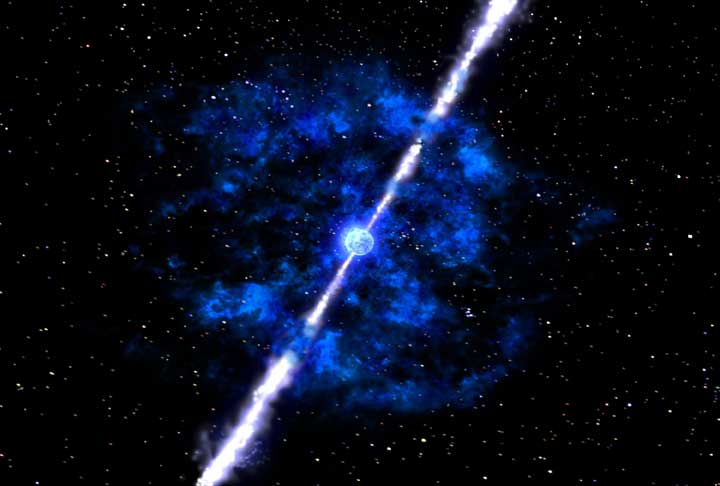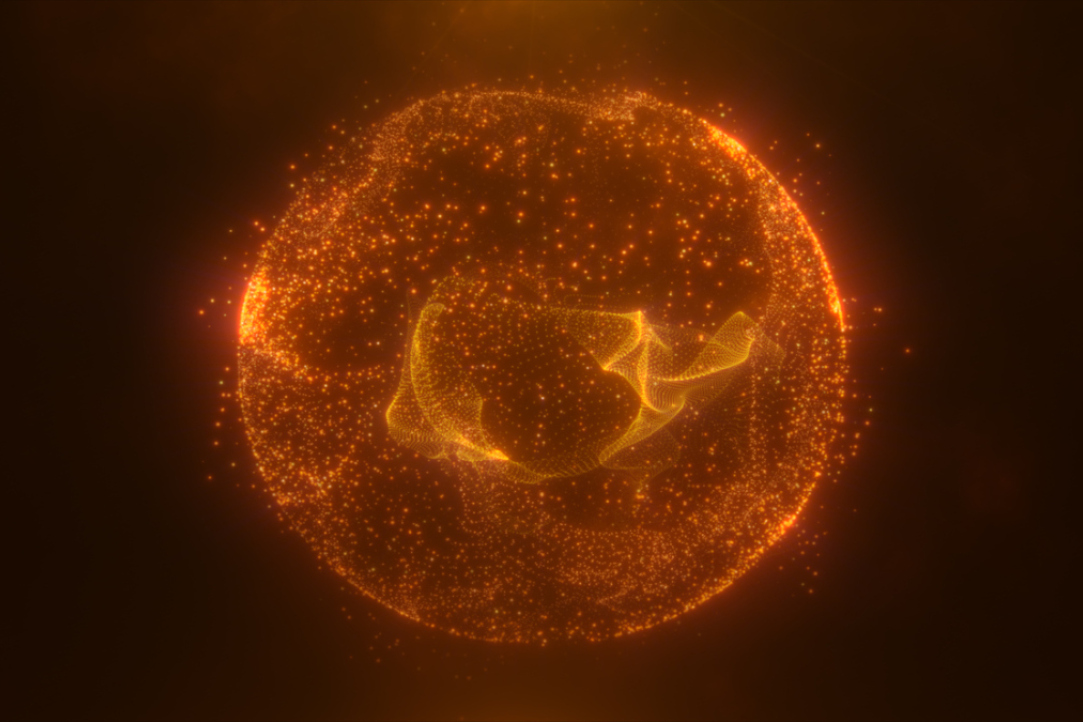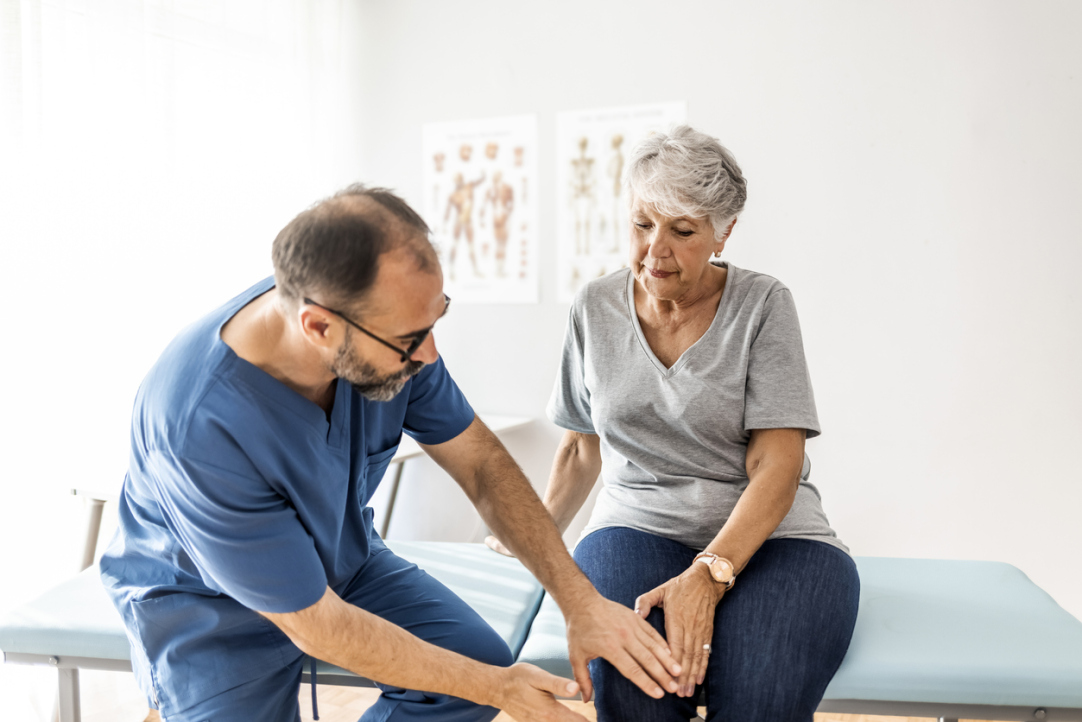
Astrophysicists Look into a Powerful Gamma-ray Burst
An international team of scientists including a HSE researcher have detected a rare optical emission from one of the most powerful gamma-ray bursts in the history of observation. The team measured the parameters of the environment, from which the emission originated, and proceeded to construct a model that simulates the behaviour of gamma-ray bursts. This contributes to our understanding of why such bursts are accompanied by electromagnetic radiation in the visible range. The findings have been published in Nature Astronomy.

Monsters of the Deep: HSE Scientists Have Compiled a Catalogue of Rogue Waves
Rogue waves, or killer waves, are abnormally high and deadly waves that can emerge unpredictably in open seas and along shorelines. They pose an imminent deadly threat to everyone from colossal liners and pleasure yachts to seafarers and vacationers. Scientists from the HSE campus in Nizhny Novgorod Efim Pelinovsky and Ekaterina Didenkulova have assembled a catalogue of such phenomena that occurred in the World Ocean from 2011 to 2018, identifying the areas where they are frequently documented and inflict the most substantial damage.

Attainment of Happiness in Psychologically Mature Individuals Linked to Pursuit of Meaning
Austrian psychiatrist Viktor Frankl believed that the quest for meaning constitutes a fundamental and intrinsic motivation for all human beings. Some other authors suggest that the need for meaning or purpose only emerges at higher levels of personality development. According to a team of psychologists from HSE and the University of Paris Nanterre, individuals who have achieved higher levels of ego development are inclined to relinquish hedonistic motives in favour of cultivating mindfulness and embarking on a quest for meaning. These findings have been published in Frontiers in Psychology.

Student Project Helps Fall in Love with French Music and Expand Cultural Outlook
On June 8th, 2023, students from different faculties of HSE University who had participated in the project ‘Cross-cultural dialogue between the Arab Maghreb and France through the example of song and music traditions’ presented the results of their work. Irina Bilyk, head of the project, and Arina Tulebaeva, a second-year student of the Asian and African Studies programme at HSE University in Moscow, who was instrumental in organising it, spoke to us about the project.

Bilingualism and Dementia: How a Second Language Protects Against Cognitive Aging
People who are fluent in two or more languages are less susceptible to age-related mental disorders. They more quickly process information and make decisions, have better memories, and can even better identify emotions. Scientists from various countries discussed the influence of a second language on the processes of cognitive aging at the international symposium ‘Bilingualism: Proper Learning, Effective Communication, and Pleasant Old Age’ hosted by HSE University.

HSE Researchers Undertake Unique Scientific Expedition to West Africa
Researchers from the HSE Faculty of Social Sciences will study social processes in African countries, the issues and features of the continent’s demographic development, and problems related to the causes of separatism and decentralisation in particular African states during a multi-day scientific expedition that will be launched in June 2023.
.jpg)
The Light of Knowledge
On May 20, the ‘Day of Light’ was held for the first time at the HSE University building on Basmannaya Ulitsa. The event was organised and conducted by students of the Faculty of Physics, who told junior students and schoolchildren about the latest scientific achievements.

Russian Physicists Developed the Fastest Algorithm for the Simulation Motion of Microparticles in a Plasma Flow
Physicists from the Joint Institute for High Temperatures of RAS, HSE University, and Moscow Institute of Physics and Technologies have developed the first open-source GPU-based code for the simulation of microparticles motion in a plasma flow. OpenDust is optimised for graphics accelerators, that allows it to calculate the forces acting on microparticles significantly faster than existing alternatives. A paper with the findings has been published in Computer Physics Communications.

Russian Researchers Discover New Approach to Combatting Osteoarthritis
A team of researchers from HSE University, the Russian Academy of Sciences Zelinsky Institute of Organic Chemistry, and Molecular Technologies, LLC have jointly proposed a new treatment for osteoarthritis. This is currently the first disease-modifying osteoarthritis drug to act simultaneously on bone and cartilage tissue metabolism and on inflammation. The study findings are published in Scientific Reports.

Married Men Less Prone to Workplace Burnout
Greater marital satisfaction lowers the risk of professional burnout, with this correlation being more pronounced among men than women. This is a conclusion made by HSE psychologists after conducting a study on the effect of social interactions on workplace burnout on a sample of 203 employees from several Russian companies. According to the researchers, gaining a better understanding of the specific aspects of burnout experienced by individuals makes it possible to address this syndrome more effectively. The paper has been published in Organizational Psychology.

